Manoj Patairiya
 Manoj Kumar Patairiya is a science writer based in India. He is interested in science writing, teaching, research and communication through different mass media. He has headed national science communication and media organizations, set up an agriculture TV channel, and edited and co-edited several books. He chairs an international inter-academy group on science, health, agriculture, risk and environment communication.
Manoj Kumar Patairiya is a science writer based in India. He is interested in science writing, teaching, research and communication through different mass media. He has headed national science communication and media organizations, set up an agriculture TV channel, and edited and co-edited several books. He chairs an international inter-academy group on science, health, agriculture, risk and environment communication.
Former secretariat
Sedeer el-Showk
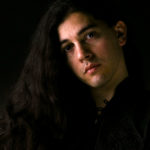 Dr. Sedeer el-Showk grew up immersed in science and in love with language. He has an MSc in evolutionary biology and a PhD in plant biology, but realized that he prefers writing about science to doing research. Sedeer is based in Finland.
Dr. Sedeer el-Showk grew up immersed in science and in love with language. He has an MSc in evolutionary biology and a PhD in plant biology, but realized that he prefers writing about science to doing research. Sedeer is based in Finland.
Sedeer has written for Nature Middle East, Nature Asia-Pacific, Science, Nautilus, SciDev.net, and others. For several years, he wrote about evolutionary biology on Accumulating Glitches, part of Nature Education’s Scitable blog network. He also covered a wide range of topics on his own blog, Inspiring Science, though it has been on hiatus for some time. You can out more about him on his webpage.
Vera Novais
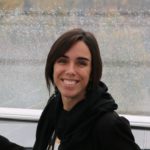 I used to be a scientist but then I realized that I enjoyed science communication more. I had already been a science communicator for a few years when I had my first experience as a science journalist and I fell in love with the job. Now I realise that scientists and journalists have more in common than they might think: they both start with a question, research about it and then communicate the results. And they try to do that as rigorously as possible. That’s how I see my work, with lots of fun in between.
I used to be a scientist but then I realized that I enjoyed science communication more. I had already been a science communicator for a few years when I had my first experience as a science journalist and I fell in love with the job. Now I realise that scientists and journalists have more in common than they might think: they both start with a question, research about it and then communicate the results. And they try to do that as rigorously as possible. That’s how I see my work, with lots of fun in between.
I’m a science journalist at Observador, a Portuguese online media. I’m an ISWA board member and a board member at the Portuguese Network of Science Communicators – SciComPT, both since 2017. In both associations, I hope I can contribute to making science journalists live easier. You can find a selection of my articles here.
Bianca Nogrady
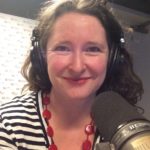 Bianca Nogrady is a freelance science journalist, author and broadcaster based in Sydney, Australia. In more than a decade of freelance reporting about science, medicine, technology and the environment, her work has appeared in outlets including Nature, The Atlantic, MIT Technology Review, The Guardian, Undark, the BMJ, Scientific American and many others. She’s also a regular guest on BBC and ABC (Australia) radio talking about science. Bianca is a two-time editor of the Best Australian Science Writing anthology, author of The End: The Human Experience of Death, and co-author of The Sixth Wave: How To Succeed In A Resource-Limited World. She is also founding president of the Science Journalists Association of Australia. Her website is www.biancanogrady.com, and she’s on Twitter as @biancanogrady.
Bianca Nogrady is a freelance science journalist, author and broadcaster based in Sydney, Australia. In more than a decade of freelance reporting about science, medicine, technology and the environment, her work has appeared in outlets including Nature, The Atlantic, MIT Technology Review, The Guardian, Undark, the BMJ, Scientific American and many others. She’s also a regular guest on BBC and ABC (Australia) radio talking about science. Bianca is a two-time editor of the Best Australian Science Writing anthology, author of The End: The Human Experience of Death, and co-author of The Sixth Wave: How To Succeed In A Resource-Limited World. She is also founding president of the Science Journalists Association of Australia. Her website is www.biancanogrady.com, and she’s on Twitter as @biancanogrady.
Laura Vargas Parada
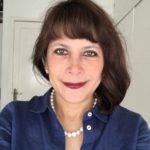 Laura studied at the Institute of Biomedical Research-UNAM where she earned her PhD degree on biomedicine. She also has a master’s degree in molecular biology of infectious diseases at the School of Tropical Medicine, London, England and postgraduate studies in Science Communication from the Open University of Great Britain.
Laura studied at the Institute of Biomedical Research-UNAM where she earned her PhD degree on biomedicine. She also has a master’s degree in molecular biology of infectious diseases at the School of Tropical Medicine, London, England and postgraduate studies in Science Communication from the Open University of Great Britain.
Since 1998, she has been lecturer at the School of Sciences at UNAM and has also taught Science Journalism at the School of Journalism Carlos Septien. Currently she is editor at the Science Communication Office of the Center for Complexity Sciences (C3) at UNAM, Mexico. As freelance science writer she is frequent collaborator at La Crónica de Hoy and El Economista local newspapers. She also writes for Nature News, Nature Outlook, Aptus Health and Medscape in Spanish among other media. Author of two books for young readers she also co-edited the book “Medicine and Genomics: A New Synthesis”. In radio she has participated as science editorialist and was the scriptwriter and conductor of the program Vértice for National Radio. She was also scriptwriter and presenter for three seasons in a science television series broadcasted by public television (SPR-channel 30).
Former board
Dr. Larry Krumenaker
President (and Editor of News.ISWA, ISWA’s newsletter/blog)
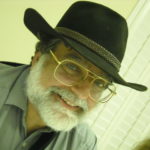 Dr. Larry Krumenaker is by training an astronomer, by trade a writer, and by nature an educator. Nominally based in a suburb of Atlanta, he had been living and working in Germany since 1 March 2015, first as Journalist in Residence at the Heidelberg Institute for Theoretical Studies, and then, until April 2016, as Guest Researcher at the University of Cologne. Now he lives in Alabama…go figure….
Dr. Larry Krumenaker is by training an astronomer, by trade a writer, and by nature an educator. Nominally based in a suburb of Atlanta, he had been living and working in Germany since 1 March 2015, first as Journalist in Residence at the Heidelberg Institute for Theoretical Studies, and then, until April 2016, as Guest Researcher at the University of Cologne. Now he lives in Alabama…go figure….
Krumenaker has published numerous articles on science and other topics, and was formerly a publisher of astronomy education periodicals. Now he is primarily a writer of books. His most recent book was actually on Atlanta in the Civil War, but Krumenaker is currently working on three different astronomy-based books/e-books, set to come out over the next year.
“I want to see our organization double its size in one year, and return to triple digits in two, by creating services and activities that aid the careers of ISWA’s members, and world science writing in general, and bring in new members.”
Dr. Sedeer el-Showk
Vice President
 Dr. Sedeer el-Showk grew up immersed in science and in love with language. He has an MSc in evolutionary biology and a PhD in plant biology, but realized that he prefers writing about science to doing research. Sedeer is based in Morocco and (occasionally) Finland.
Dr. Sedeer el-Showk grew up immersed in science and in love with language. He has an MSc in evolutionary biology and a PhD in plant biology, but realized that he prefers writing about science to doing research. Sedeer is based in Morocco and (occasionally) Finland.
Sedeer has written for Nature Middle East, Nature Asia-Pacific, Science, Nautilus, SciDev.net, and others. For several years, he wrote about evolutionary biology on Accumulating Glitches, part of Nature Education’s Scitable blog network. He also covered a wide range of topics on his own blog, Inspiring Science, though it is on hiatus at the moment.
“For 18 months, I worked with the Interim Board to rebuild ISWA’s infrastructure. Now ISWA is ready to go, but it needs to attract new members, a task which calls for active, engaged leadership. Together with the rest of the Board, I will work to create activities to support our members and promote ISWA to a new generation of science writers.”
Vera Novais
 I used to be a scientist but then I realized that I enjoyed science communication more. I had already been a science communicator for a few years when I had my first experience as a science journalist and I fell in love with the job. Now I realise that scientists and journalists have more in common than they might think: they both start with a question, research about it and then communicate the results. And they try to do that as rigorously as possible. That’s how I see my work, with lots of fun in between.
I used to be a scientist but then I realized that I enjoyed science communication more. I had already been a science communicator for a few years when I had my first experience as a science journalist and I fell in love with the job. Now I realise that scientists and journalists have more in common than they might think: they both start with a question, research about it and then communicate the results. And they try to do that as rigorously as possible. That’s how I see my work, with lots of fun in between.
I’m a science journalist at Observador, a Portuguese online media. I’m an ISWA board member and a board member at the Portuguese Network of Science Communicators – SciComPT, both since 2017. In both associations, I hope I can contribute to making science journalists live easier. You can find a selection of my articles here.
Elisabetta Curzel
Treasurer
 Freelance journalist Elisabetta Curzel lives in Trento, Italy. She has written for, among others, Corriere della Sera, IlSole24Ore, and Italian public television.
Freelance journalist Elisabetta Curzel lives in Trento, Italy. She has written for, among others, Corriere della Sera, IlSole24Ore, and Italian public television.
“As an ISWA board member, I would be pleased to serve in order to develop two points: to broad our association’s membership, especially among young science journalists; and to foster its network spirit. I consider it strategically important in order to give ISWA a global status. Moreover, to help colleagues from all over the world doing their job is to help our job itself surviving – and I really think science journalism needs support.”
Jim Cornell
Member-at-Large
 James Cornell served for nearly 30 years as Publications Manager for the Harvard-Smithsonian Center for Astrophysics, responsible for all technical and popular information. The author or editor of more than a dozen science books for general audiences, he has also written for a variety of US newspapers and magazines, as well writing and producing video and film documentaries and museum exhibits. As long-time President of the International Science Writers Association (ISWA), he promoted science communication globally by providing a forum for journalists from the developing world. He continues these efforts as a freelance writer and consultant to various organizations.
James Cornell served for nearly 30 years as Publications Manager for the Harvard-Smithsonian Center for Astrophysics, responsible for all technical and popular information. The author or editor of more than a dozen science books for general audiences, he has also written for a variety of US newspapers and magazines, as well writing and producing video and film documentaries and museum exhibits. As long-time President of the International Science Writers Association (ISWA), he promoted science communication globally by providing a forum for journalists from the developing world. He continues these efforts as a freelance writer and consultant to various organizations.
“As long-time President of the International Science Writers Association (ISWA), I promoted science communication globally by providing a forum for journalists from the developing world. I will continue these efforts as an ISWA Board Member-at-Large, offering the benefit of my long experience with the organization in the past to help shape its evolution in the future.”
Last updated: October 2021